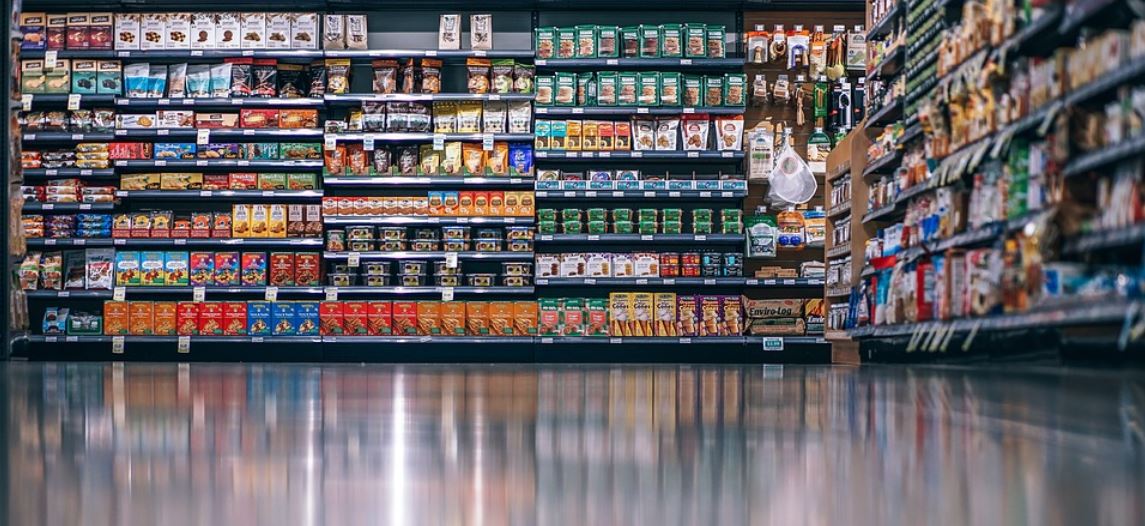Pilot to speed up detection of listeria in food production
21/03/2022This pilot in collaboration with PepsiCo sought to find new and revolutionary tools and techniques to increase the speed at which food manufacturers can accurately detect listeria in their food production facilities.
The Challenge
Listeria monocytogenes (listeria) is an organism found naturally in the environment, soil and air but which may cause very severe disease when ingested by humans, especially people with weakened immune systems like the elderly, very young children and pregnant women.
To prevent listeria from entering the food chain, food production facilities frequently use swab tests. However, current detection methods may not return results for days because samples are typically sent off-site for analysis. Using new on-site technologies could allow a facility to perform 40-50 tests per week and receive results much quicker than before.
The Solution
Safetytech Accelerator worked closely with PepsiCo to outline the technology parameters for the challenge and sourced fourteen startups with new approaches to listeria detection. From these applications, the most promising startups were shortlisted to pitch their solutions in front of Lloyd’s Register, Safetytech Accelerator and PepsiCo judges.
US-based SnapDNA was selected as the technology partner for this challenge, having developed a diagnostic instrument that can be used quickly and with minimal effort. The majority of tasks are completed with automated programs that can be selected using a touch screen display.

Industry established sample sizes are placed in cartridges and analysed in parallel using multiple bays for increased throughput. The instrument aims to provide rapid quantitative results with near-zero false positives.
The Pilot
Originally the pilot was to conducted on-site at a PepsiCo facility. The Covid pandemic made this impractical so tests were performed at SnapDNA’s labs with partners attending via video conferencing.
From the start, PepsiCo emphasised the importance of detecting only live cells. This is a core food industry requirement that few rapid analysis solutions have achieved. Lab testing currently relies on culturing bacteria for live-only analysis since only live cells will grow. Culturing is a slow biological process and a key factor as to why it currently takes 3-7 days for lab results.
PepsiCo proposed that SnapDNA analyse three 10ml triplicate sample sets prepared by an independent food testing lab:
- Three live cell samples with 1K-10K cells per sample
- Three dead cell samples with 1M-10M cells per sample
- Three mixed cell samples with 1K-10K live cells plus 1M-10M dead cells per sample

Results
SnapDNA analysed nine independently prepared samples using two nearly identical SnapDNA prototype instruments, each containing one analysis bay. The test was successful, with 100% correct results:
- No dead listeria cells were detected
- Live listeria cells were strongly detected
- The presence of dead listeria cells did not impact the detection nor quantitation of live listeria cells
These results demonstrate that the SnapDNA system detects only live listeria cells even in the presence of a large excess of dead cells.
Industry-Wide Impact
Detection of only live cells is considered by many food safety professionals to be the single largest challenge to rapid pathogen detection. This pilot has shown it is now possible for food producers to perform high speed and accurate detection of live listeria cells.
David Medin, CEO at SnapDNA Corporation had this to say about the collaboration,
“This pilot with Safetytech Accelerator allowed us to demonstrate critical aspects of our technology with one of the largest food companies in the world. They were able to assist us in managing the project and providing feedback from their experience with other clients. The collaboration between the three parties resulted in the successful outcome we achieved.
PepsiCo has been an outstanding partner with invaluable, leading industry experience in food safety. Their team of experts remained involved throughout the project and provided insight and feedback critical to our success with the pilot and with our upcoming commercial product. Our work with PepsiCo has created a relationship and opened an opportunity for a larger pilot that will have potentially industry changing implications.”
Steve Price, Head of Partnerships at Safetytech Accelerator commented,
“We were delighted to be involved in this pilot with technology which could help make big strides in early detection of food pathogens, and therefore contribute to improving safety in the food industry.We exist to bring companies like these together to test and improve technologies for a safer world.”
>>>
About Pepsico
PepsiCo, Inc. is an American multinational food, snack, and beverage corporation headquartered in Harrison, New York, in the hamlet of Purchase. PepsiCo’s business encompasses all aspects of the food and beverage market. It oversees the manufacturing, distribution, and marketing of its products. PepsiCo was formed in 1965 with the merger of the Pepsi-Cola Company and Frito-Lay, Inc. PepsiCo has since expanded from its namesake product Pepsi Cola to an immensely diversified range of food and beverage brands. The largest and most recent acquisition was Pioneer Foods in 2020 for $1.7bn and before that it was the Quaker Oats Company in 2001, which added the Gatorade brand to the Pepsi portfolio and Tropicana Products in 1998.
About SnapDNA
SnapDNA meets or exceeds every critical industry metric for food pathogen testing including those for specificity, sensitivity, and false positive rates. The SnapDNA system processes industry established sample sizes and analyzes only live cells. Testing can be performed almost anywhere, by almost anyone, with only minimal training. Our automated system can be placed directly at point of need, allowing cloud-based and instant, real-time monitoring of pathogen testing for a food company across all its facilities, delivering the information every food safety professional requires and every food company needs. We are poised to revolutionize food safety testing by delivering the next generation of analytical tools to the food industry.
About Safetytech Accelerator
Safetytech Accelerator is a non-profit established by Lloyd’s Register. It is the first fully dedicated technology accelerator focused on safety and risk in industrial sectors. Our mission is to make the world safer and more sustainable through wider adoption of safetytech.

